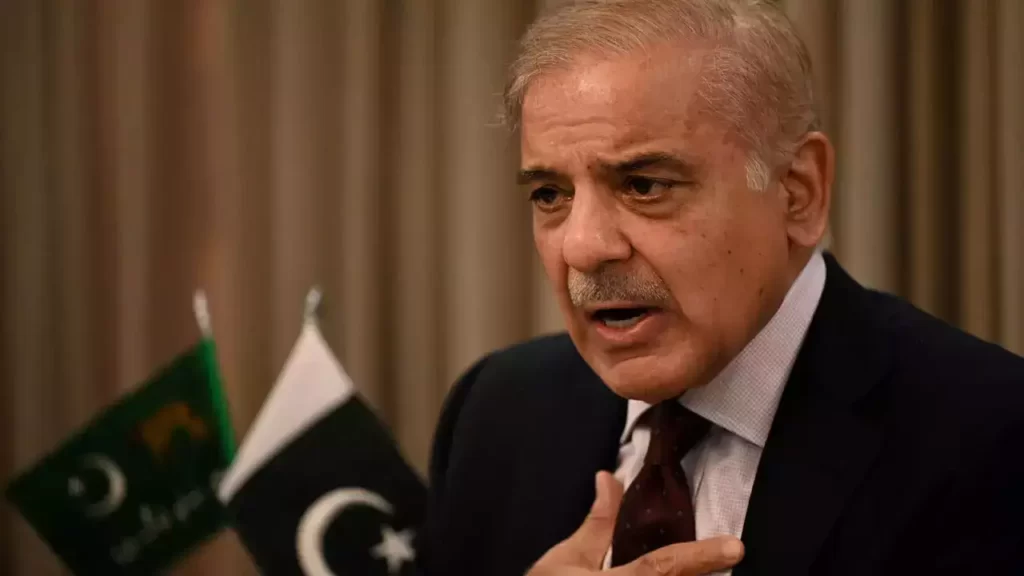According to a report in the media on Friday, Prime Minister Shehbaz Sharif called the head of the International Monetary Fund, Kristalina Georgieva, to resolve the impasse about the release of the next instalment of aid for cash-strapped Pakistan.
Four days prior to the prime minister and IMF chief’s anticipated face-to-face encounter at the Geneva Conference for flood victims, the contact was made. Although the conversation was unofficial, sources told The Express Tribune that the prime minister had encouraged the IMF managing director to reevaluate the requirements for the introduction of new taxes.
In order to make up for the yearly circular debt management plan’s deviation of about 500 billion yen, he also asked for an easing of the need for energy price increases.
Also Read: Mexico arrests son of drug mafia ‘El Chapo’ before Joe Biden’s visit
These continue to be the key roadblocks to gaining an early understanding of an IMF staff visit to Pakistan. The sources continued, “However, the government stood poised to slap flood levies and windfall income taxes on commercial banks.”
The Pakistani side vowed to raise energy rates in the future to counteract any additional deviance. It was unclear right away whether the IMF MD had made any compromises. On November 18, Pakistan and the IMF held a round of negotiations but were unable to agree on a timetable for formal discussions on the past due ninth review.
In spite of the ongoing political unrest and the terrible floods that have forced more than 33 million people to flee their homes, Pakistan was able to avoid going into default thanks to the IMF’s much-needed bailout package.
The premier also called his Chinese counterpart, Li Keqiang, to ask for Beijing’s assistance in preventing an impending default as the economy continues to be under pressure, while army commander General Asim Munir spoke with the Saudi defense minister in Riyadh.

As the official foreign exchange reserves fell to USD 5.6 billion, the contacts were made. According to The Express Tribune, the prime minister’s call to the head of the IMF shows that the finance ministry has been unable to resolve the impasse for the previous three months.
Finance Minister Ishaq Dar had voiced expectations of securing a USD 3 billion second bailout from Saudi Arabia days earlier in what appeared to be an alternative to the IMF, promising to generate money through the sale of assets to bolster the critically low foreign exchange reserves.
However, because it cannot permanently fix the issue, the Saudi monetary help can only postpone the default. The government is committed to the IMF program, according to the finance minister. He continued, “We will not adopt steps that may increase the burden on the average man,” while, at the same time.
Also Read: Horoscope: Astrological ideas for January 06, 2023
According to the Express Tribune, the IMF had previously requested a plan to end the additional 500 billion rupees in circular debt, raise energy prices, impose new taxes, allow the rupee to regain its real value, and achieve the primary budget surplus targets, excluding flood-related expenses. These actions would fuel inflation, which is already at 25%.
Last year, the donor restarted the USD 6 billion loan program that had been placed on hold since Pakistan had not complied with its terms when it was first agreed upon in 2019. However, given Pakistan’s failure to keep recent agreements, it has once more refused to deliver additional payments.

